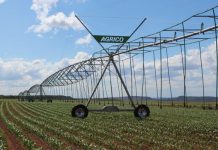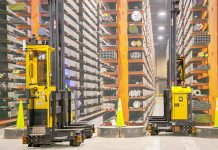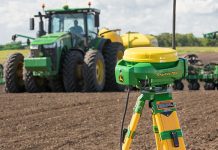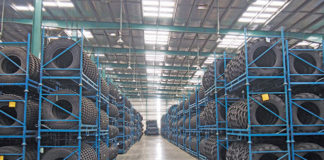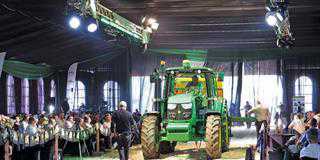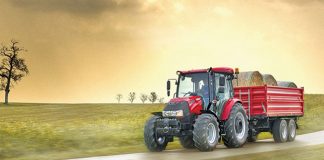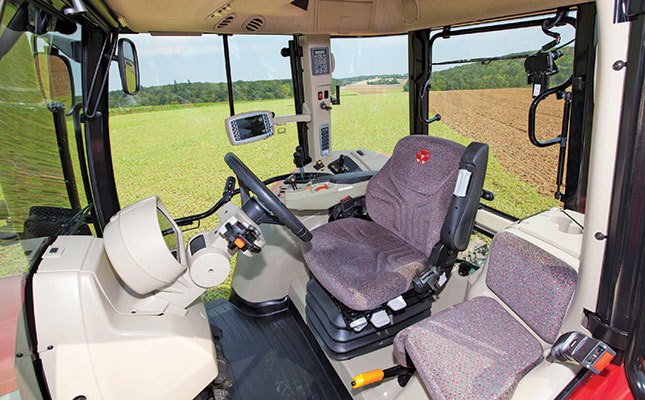
Photo: FW Archive
To obtain a balanced overview of the costs, advantages and drawbacks of modern farming technology, Farmer’s Weekly posed key questions to four technology experts:
Johannes Grobler (JG), head of technical services at ZZ2, one of South Africa’s largest and oldest family-owned farming businesses.
Daniel Koppel (DK), CEO and co-founder of Israeli technology company, Prospera.
André Westerveld (AW), country director for Elanco Animal Health.
Jeremy Potgieter (JP), regional director for sub-Saharan Africa at Eseye, a global wireless connectivity company.
Are farmers investing too much in technology?
JG: Everything in modern farming is about precision agriculture but it’s important for farmers to remember that technology uptake is not the same for all producers. It depends on the size of the farming operation. For the small-scale farmer, a tractor is the most important technological intervention he could introduce. On a big farm, a tractor is a given.
DK: Farmers should be investing in technology but the question is which technology. It’s essential that whatever is chosen brings a real return on investment and helps to improve the management and analysis of a crop’s performance. A farmer should invest in technology that can identify problems and provide solutions for pests, diseases, irrigation challenges and nutrient deficiencies, among others.
AW: Farmers need to think more carefully about whether the technology they invest in will give them the returns they expect. They should make careful assessments about their unique farming conditions and balance sheets to ensure the investment is justified.
JP: A lot more should be invested in making farms more productive. Surprisingly, agriculture as a sector has led the adoption of technological advancements and the ‘Internet of Things’ [the ability of devices such as sensors, pumps, temperature control units and trucks to communicate with each other over networks without human intervention]. But there’s still a long way to go before farmers everywhere fully embrace the value that can be derived from utilising technology.
While the commercial farming sector has made strides in this area, there’s still a disproportionate number of farmers in Africa who don’t have access to technology. If these farmers adopted services that connected them to the marketplace, they would get a broader view of market prices, and this has the potential to change subsistence farmers into semi-commercial farmers. Market data and analysis can be made accessible to farmers through simple apps.
How can farmers avoid spending money on technology they don’t need and make better decisions about what will yield good financial returns?
JG: Don’t be afraid to ask questions about new products, equipment or machines. Keep in mind that product testing may not have taken place under SA production conditions, which could affect how the technology performs on your farm. The best approach is to conduct on-farm tests of all products you buy, from a fuel additive, say, to a new tyre brand.
If it’s a fuel additive, don’t simply believe claims of better fuel efficiency – test it. If it’s a tyre, don’t just accept the manufacturer’s promise of a lower wear and tear rate. And remember, if a fuel additive does provide better fuel efficiency, you might be able to achieve the same result simply by adjusting your driving style.
DK: Assess if the technology in question will provide you with business value in the long term. If the investment is sound, it should lead to monetary value for your business. Ask questions about the technology provider. Find out if the company has a clear understanding of what matters to a farmer, if the product was developed by agronomists, and if it uses the highest-grade technology available.
AW: Challenge suppliers to demonstrate the benefits and returns they guarantee. Beware of the supplier who only wants to earn commission. Interrogate all claims to find out how the investment will add value to your business. In the case of animal production, investing in technology is worth it if it helps you improve your utilisation of finite resources, enhance production and get more from your herds.
JP: Much is said about the capabilities that technology brings. Don’t get caught up in the hype, and choose providers who understand your business and can identify where efficiencies and productivity can be gained.
Does technology always make farmers more efficient?
JG: We use technology extensively on all our farms but in certain situations farmers need economies of scale to justify the investment. Be careful of overcapitalising your operation and remember that buying technology isn’t the only way to benefit from it.
If your farming enterprise isn’t big enough to justify the investment, find a company that offers the service, or rent the equipment you need. This will reduce your risk and capital outlay. If you do make the investment, consider renting out the equipment or machinery. This will reduce the repayment term.
DK: Technology should help farmers achieve greater efficiencies. It’s only through technology that the agricultural sector can be transformed from a practice based on intuition to one based on data. The ability to analyse data offers huge possibilities for farmers, such as recognising new strains of diseases before they become widespread and determining how factors such as temperature and humidity can bring about pest outbreaks and disease.
AW: Technology alone can’t make a farmer efficient; it must be used correctly to achieve incremental year-on-year gains. Often, these improvements result in greater returns. Assess what’s suitable for your farm and level of expertise. A skilled and well-trained labour force can also make it easier for you to embrace technology.
Consult widely with experts – it will be money well spent because they’ll help you get the most out of the technology you’ve invested in. Remember, the advice you ask upfront is the cheapest advice. A vet can help to maximise your animals’ health programmes and a nutritionist can develop diets to improve their performance.
JP: The more farmers know, the better they can forecast their production and mitigate risk. Mobile communication is one form of technology that can accelerate agricultural economic development in Africa and give farmers access to agricultural information services that can help them farm better.
Contact details: Johannes Grobler: [email protected]; Daniel Koppel: [email protected]; Jeremy Potgieter: [email protected]; André Westerveld: [email protected].



